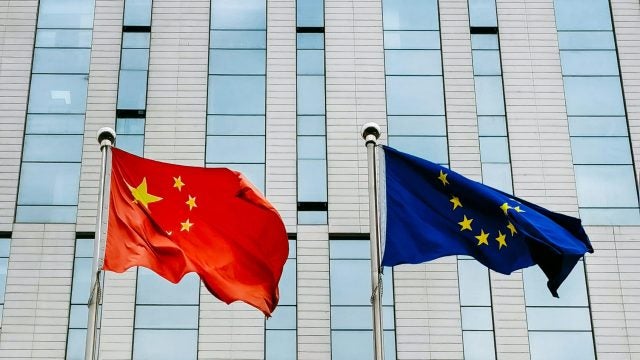
Title: E-Commerce, Digital Identity, and Inclusive Digital Economy in Southeast Asia
The COVID-19 pandemic has significantly accelerated the digitization of Southeast Asian economies and presented promising opportunities in the e-commerce sector. Having a good digital identity is the key for all e-commerce actors to achieve an inclusive digital economy that benefits all people.
The growth of the digital economy in Southeast Asia has increased at an unprecedented rate in the past decade. A Google and Temasek report in 2018 forecasted that the size of the digital economy in six major Southeast Asian markets (Singapore, Thailand, Malaysia, Indonesia, Vietnam, and the Philippines) would reach $200 billion by 2025. However, because of pressure from new business practices introduced since the COVID-19 pandemic, this number has increased by 80 percent. A 2021 report by Google, Temasek, and Bain now predicts the digital economy to reach $360 billion by 2025, driven by e-commerce, food delivery, and digital financial services. This forecast is supported by another report by Bain and Facebook in 2021 that presented a promising picture of the demographics in these markets, showing that 78 percent of the population, roughly 350 million people, are fifteen years old and older—a demographic known as ‘digital consumers.’ Digital consumers prefer using the internet to make transactions. The report noted that since 2020, 70 million more people have become digital consumers. Changes in the COVID-19 pandemic have forced Southeast Asian economies to digitize more rapidly.
The 2021 Google Temasek Bain Report noted that the major shift in consumer behavior forced small and medium enterprises (SMEs) to embrace digital services and become “digital merchants.” Digital consumers and merchants have faced challenges of the “new normal” by adopting new behaviors, including increasing quality considerations; improving delivery time; taking into consideration the environment and sustainability; preferring e-wallets over cash; and placing more online orders. Although these new behaviors have presented huge opportunities for businesses, they have also presented challenges such as data security, privacy, and digital inclusion, issues that could be addressed through the creation of a stronger and more robust digital identity program.
To address these challenges, ASEAN governments developed the ASEAN Agreement on Electronic Commerce in 2019. Under this agreement, ASEAN nations commit to paperless trading, electronic authentication and e-signature, online consumer protection, seamless cross-border transfer of information, online personal information protection, and local computing facilities. However, two fundamental issues need to be addressed to fully support the implementation of the agreement and enable ASEAN to realize its lofty ambitions. First, alongside the physical foundation produced by building digital infrastructure, a strong digital foundation needs a solid digital identity program. Second, there needs to be a process that promotes harmonization and cross-sectoral coordination of rules and regulations, especially regarding the adoption of stronger digital identity programs among ASEAN governments and inside national bureaucracies. The government, private sector, and civil society must ensure the creation of a stronger digital identity to address issues such as data security, privacy, and digital inclusion.
Digital identity is more than just putting physical identity such as a signature or a photograph online. According to a 2016 report by GSMA, the World Bank, and Secure Identity Alliance, digital identity is defined as a collection of electronically captured and stored identity attributes that uniquely describe a person within a given context and that are used for electronic transactions. Digital identity will help create digital trust by facilitating the authentication of an actors’ identity in e-commerce through a connection between the identity attributes in the digital world and the real-world legal identity. E-commerce activities depend on digital trust to process transactions; the lack of a verifiable digital identity will preclude participation in these systems.
A trusted digital identity is critical for both e-commerce merchants and customers. It ensures that people will have a solid basis from which to interact with governments, leading to tracking the administration of social and political benefits such as educational opportunities, public health coverage, welfare programs, and banking. Another GSMA report in 2019 demonstrated that Southeast Asian markets are at different stages of digital identity development. Although some progress has been made, these markets still need to address challenges such as data security and privacy, data consistency, and, particularly, corruption.
Government is the most likely actor to have the credibility to ensure the development of business-friendly regulations that support the e-commerce ecosystem. Governments’ role in the establishment of national digital identity is key to successfully developing digital trust. The government has the exclusive right to issue and manage citizen identification documents. Ensuring that citizens have a digital identity also means guaranteeing access to and use of affordable information and communication technologies. Moreover, the government has the power to act as the enforcer when e-commerce players face challenges related to digital identity such as the creation of fake accounts, illegal sales of goods, and sales of counterfeit products. The government can ensure actors in the e-commerce ecosystem operate within an agreed set of rules.
At the regional level, ASEAN cross-border interoperability of digital identity will accelerate economic integration through an increase in cross-border e-commerce transactions that will benefit many businesses, but most notably for the small business sector that makes up the majority of the economic operators in Southeast Asia. Ensuring the interoperability of digital identity will lead to harmonized and trusted authentication tools in e-commerce. This will hasten e-commerce activities that often depend on the speed of the product delivery and facilitate economic recovery post-COVID-19 via international recognition of health certifications.
The private sector, including e-commerce platforms, digital banking, payment processing, and logistics, provides key services that enable e-commerce and enhance digital trust. The success of e-commerce depends on digital trust, built through verification and authentication processes, especially during merchant and customer registrations and payment, as well as through rating systems. Strong digital trust generates a sense of security in a transaction—key to any e-commerce activity.
Through the lens of SMEs, the backbone of Southeast Asian economies, the private sector benefits from either joining the e-commerce value chain or acting as direct sellers on the platform. “Digital SMEs” in the e-commerce ecosystem are the catalyst for inclusive growth in Southeast Asia. These are SMEs that are not only digitally literate and empowered through online training programs such as the ASEAN SME Academy, but are also well-informed of the importance of digital trust in e-commerce activities.
The roles that the private sector and government play in the e-commerce ecosystem are complemented by the ‘balancer’ role that civil society organizations (CSOs) assume. CSOs bring the values of different societal segments closer to policy makers and keep both the government and private sector in check. CSOs provide feedback to the government on how to make corrective adjustments and hold the private sector accountable, ensuring both actors play their parts in the interest of society.
CSOs could propose a set of principles for digital identities, emphasizing the importance of individual identity and data privacy. Some of the principles for good digital identity according to ID2020 include the ability of individuals to possess and prove their digital identity as a human right; the right to control one’s own identity; and the risk of data misuse if digital identity is not carefully designed. Currently, there is a lack of representation of e-commerce players in civil society at the national and regional levels. The US-ASEAN Business Council E-Commerce Report 2020 proposed the establishment of the ASEAN E-Commerce Association to bridge this gap.
Southeast Asian markets’ digital economy outlook has put the spotlight on the region as one of the world’s most promising economic sectors. Actors in e-commerce value chains have benefitted from digitization in the past decade, but a significant potential for growth remains to be unlocked. Understanding the roles of different e-commerce actors, the government, the private sector, and civil society is critical to achieving a digitally inclusive e-commerce ecosystem that benefits all.
…
Mario Masaya is Digital Policy Director at the US-ASEAN Business Council. His areas of interest include digital technology policy, the financial technology sector, and Southeast Asian history. The views expressed in this article are those of the author and do not necessarily reflect the official position of the Council.
Image Credit: Gunawan Kartapranata, CC BY-SA 3.0
More News

This article contends that South Africa’s 2025 G20 presidency presents a critical opening to shape governance of critical mineral supply chains, essential for renewable energy, digital economies, and national…

Germany’s economy is being throttled by a more competitive China that has usurped its previous manufacturing dominance in many industries. In response, Germany has doubled down on the China bet…

In 2021, the European Union (EU) attempted to assert itself in the Indo-Pacific arena to increase its geopolitical relevance by releasing an ambitious and multifaceted Indo-Pacific Strategy. However, findings from…